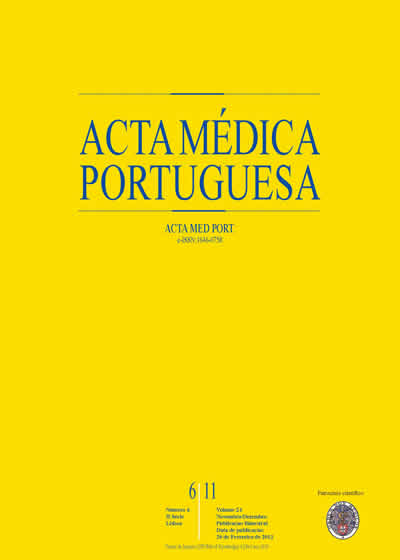Mosquitoes (Diptera, Culicidae) and their medical importance for Portugal: challenges for the 21st century.
DOI:
https://doi.org/10.20344/amp.1419Abstract
Mosquitoes are dipterous insects, responsible for the transmission of several pathogenic agents to humans, causing vector-borne diseases, such as malaria, lymphatic and other filariasis, and several arboviral diseases such as yellow fever and dengue. In this revision, Culicidae or mosquitoes are summarily characterized, as well as their bioecology, internal morphology, digestive and egg maturation physiology, and the main methods for their collection and control. The epidemiology of mosquito-borne diseases depends on parameters such as Vectorial efficiency, Vector competence and Vectorial capacity, the concepts of which are presented. Forty one species of mosquitoes have been detected so far in mainland Portugal. Malaria was endemic till 1959, yellow fever outbreaks were registered in the XIX century, and human cases of dirofilarisis and West Nile fever have been detected. In face of the current climate changes in course and the threat of the (re)-introduction of exotic mosquito species, not only new cases of some of these diseases may occur, increasing their risk, but also other mosquito-borne diseases may be introduced constituting challenges for the XXI century, demanding a continued surveillance in a Public Health perspective.Downloads
Downloads
Published
How to Cite
Issue
Section
License
All the articles published in the AMP are open access and comply with the requirements of funding agencies or academic institutions. The AMP is governed by the terms of the Creative Commons ‘Attribution – Non-Commercial Use - (CC-BY-NC)’ license, regarding the use by third parties.
It is the author’s responsibility to obtain approval for the reproduction of figures, tables, etc. from other publications.
Upon acceptance of an article for publication, the authors will be asked to complete the ICMJE “Copyright Liability and Copyright Sharing Statement “(http://www.actamedicaportuguesa.com/info/AMP-NormasPublicacao.pdf) and the “Declaration of Potential Conflicts of Interest” (http:// www.icmje.org/conflicts-of-interest). An e-mail will be sent to the corresponding author to acknowledge receipt of the manuscript.
After publication, the authors are authorised to make their articles available in repositories of their institutions of origin, as long as they always mention where they were published and according to the Creative Commons license.









